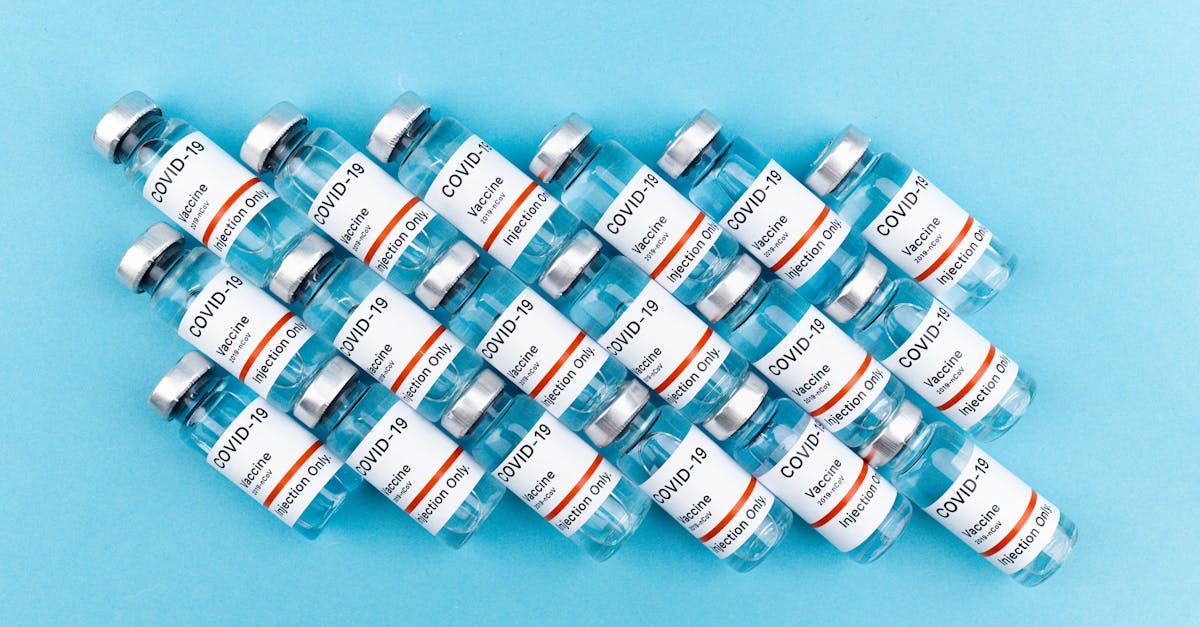Beyond Cholesterol: 17 Tiny Habits That Worsen Your Artery Plaque
When we think of artery plaque, cholesterol often takes center stage as the primary villain. However, the reality is more complex. Artery plaque is a multifaceted issue influenced by a variety of lifestyle factors beyond just cholesterol levels. Emerging research highlights how certain seemingly insignificant habits can contribute to the buildup of plaque in the arteries, posing significant risks to cardiovascular health. We've expanded our list of tiny yet impactful habits that can exacerbate artery plaque, offering a comprehensive view of how everyday choices influence heart health. By understanding these factors, we can better protect ourselves from cardiovascular diseases.
1. Sedentary Lifestyle: The Silent Contributor

Physical inactivity is often underestimated in its role in promoting artery plaque. Regular movement is essential for maintaining healthy blood flow and preventing the buildup of fatty deposits in the arteries. When we lead a sedentary lifestyle, our metabolism slows down, and the efficiency of our circulatory system diminishes. This inactivity can lead to increased blood pressure and elevated levels of triglycerides, both of which contribute to plaque formation. Incorporating even small amounts of activity, like short walks or stretching, can significantly improve vascular health and reduce the risk of plaque accumulation.
2. Poor Sleep Patterns: The Nighttime Saboteur

Sleep is a critical component of cardiovascular health, yet its impact on artery plaque is often overlooked. Poor sleep patterns, whether due to insufficient sleep or disrupted sleep cycles, can lead to increased stress levels and inflammation in the body. These conditions are conducive to the development of plaque in the arteries. Sleep deprivation affects the body's ability to regulate blood sugar and blood pressure, both of which are risk factors for plaque buildup. Prioritizing quality sleep by maintaining a regular sleep schedule and creating a restful environment can help mitigate these risks.
3. Stress and Anxiety: The Invisible Agitators

Chronic stress and anxiety are more than just mental health concerns; they have profound effects on physical health, particularly concerning artery plaque. Stress triggers the release of hormones like cortisol, which can lead to increased blood pressure and inflammation, both precursors to plaque accumulation. Furthermore, stress often leads to unhealthy coping mechanisms such as poor diet and smoking, which exacerbate the problem. Managing stress through mindfulness practices, such as meditation or yoga, can help reduce its impact on cardiovascular health and prevent plaque buildup.
4. Dietary Choices: Beyond Fats and Cholesterol

While cholesterol and saturated fats are well-known dietary culprits, other aspects of diet also play a crucial role in artery health. High sodium intake, often from processed foods, can lead to hypertension, a significant risk factor for plaque formation. Moreover, diets low in fiber and high in refined sugars can cause spikes in blood sugar levels, contributing to inflammation and subsequent plaque buildup. Adopting a balanced diet rich in fruits, vegetables, whole grains, and lean proteins can help maintain arterial health and reduce the risk of cardiovascular diseases.
5. Smoking and Alcohol: The Dual Threat

Both smoking and excessive alcohol consumption are major contributors to artery plaque. Smoking introduces harmful chemicals into the bloodstream that damage the lining of the arteries, making them more susceptible to plaque accumulation. Similarly, excessive alcohol intake can raise blood pressure and triglyceride levels, promoting plaque formation. Quitting smoking and moderating alcohol consumption are crucial steps in preventing arterial damage. These changes can significantly improve heart health and reduce the risk of plaque-related complications.
6. Hydration Habits: The Overlooked Essential

Staying adequately hydrated is vital for maintaining optimal blood viscosity and circulation. Dehydration can lead to thicker blood, which increases the risk of clot formation and plaque buildup in the arteries. Additionally, proper hydration supports kidney function, which helps regulate blood pressure and remove toxins that can contribute to plaque. Drinking sufficient water throughout the day and limiting diuretics like caffeine and alcohol can support arterial health and prevent plaque-related issues.
7. Inflammation and Immune Response: The Hidden Culprits

Chronic inflammation is a significant factor in the development of artery plaque. It can be triggered by various factors, including autoimmune disorders, infections, and poor diet. Inflammation causes the arterial walls to become more permeable, allowing cholesterol and other substances to accumulate and form plaque. Managing inflammation through a healthy lifestyle, including a diet rich in anti-inflammatory foods like omega-3 fatty acids and antioxidants, can help protect the arteries. Monitoring and treating underlying health conditions that contribute to inflammation is also crucial in preventing plaque buildup.
8. Chronic Uncorrected Gum Disease (Periodontitis)

The health of your mouth is intrinsically linked to the health of your arteries, making chronic gum disease a major hidden factor in plaque buildup. Periodontitis is a low-grade, persistent bacterial infection that causes continuous inflammation. These oral bacteria and the pro-inflammatory chemicals they trigger don't stay in the mouth; they constantly enter the bloodstream. Once circulating, they trigger a systemic inflammatory response, damaging the endothelial lining of the arteries and making them "sticky." This damaged, inflamed lining becomes highly susceptible to accumulating cholesterol, accelerating the entire process of atherosclerosis. Daily, thorough flossing and regular dental check-ups are non-negotiable cardiovascular habits.
9. Inconsistent Medication Timing (The Chemical Stress Spike)

For people taking blood pressure or cholesterol-lowering medications, inconsistent timing is a subtle sabotage. The body relies on a constant, steady concentration of the drug in the bloodstream to maintain smooth blood vessel tone and optimal enzyme inhibition. Taking a pill several hours late one day, then early the next, causes a "chemical zig-zag" where the medication dips to sub-therapeutic levels. This exposes the arteries to brief but repeated, sharp spikes in pressure and unregulated lipid activity. These pressure and chemical fluctuations create sheer stress on the arterial walls, promoting micro-injuries that are rapidly patched over with plaque components. Adhering to a strict, fixed schedule is vital for steady, 24-hour vascular protection.
10. Habitual Use of Antibacterial Mouthwash

This seemingly healthy habit disrupts a critical pathway for nitric oxide (NO) production, which is essential for healthy, relaxed arteries. Many antibacterial mouthwashes aggressively kill beneficial bacteria that reside on the tongue and in the mouth. These specific microbes are responsible for converting dietary nitrates (from heart-healthy foods like beets and spinach) into nitrites, which the body then uses to make NO. When this bacterial community is destroyed, the NO pathway is blocked, hindering the body's natural ability to relax blood vessels (vasodilation) and maintain optimal blood flow. Chronic use of strong mouthwash inadvertently increases arterial stiffness, contributing to plaque risk.
11. Chronic Isolation and Loneliness (The Vagal Tone Breakdown)

A lack of strong social connection is a powerful, non-physical habit that directly stresses the cardiovascular system. Chronic loneliness or isolation maintains the body in a subtle state of "social threat" or low-grade panic. This constant activation of the sympathetic nervous system (fight-or-flight) leads to persistently elevated cortisol and adrenaline. These stress hormones accelerate heart rate, constrict vessels, and increase circulating inflammatory markers. Over time, this sustained emotional stress compromises vagal tone (the body's calming system), maintaining high arterial tension that encourages vessel damage and subsequent plaque formation. Nurturing meaningful relationships is crucial for physiological calm.
12. High Consumption of Fructose and Added Sugars

While "refined sugars" are mentioned, the specific impact of fructose (especially high-fructose corn syrup, but also fruit juices) deserves emphasis. Fructose metabolism is unique: it is rapidly processed by the liver, contributing directly to the production of triglycerides and small, dense LDL particles—the most aggressive, plaque-forming type of cholesterol. High sugar intake also contributes to insulin resistance, which is a major driver of chronic, systemic inflammation and damages the delicate lining of the arteries. Cutting back on sugary drinks and hidden sugars is paramount to reducing the raw materials and inflammatory signals that feed arterial plaque.
13. Unmanaged Sleep Apnea/Loud Snoring (Nocturnal Oxygen Shock)

Loud, habitual snoring or undiagnosed sleep apnea creates a relentless stress on the arteries every single night. These conditions cause repeated, brief periods where breathing stops, leading to sharp drops in blood oxygen saturation followed by emergency spikes in adrenaline and blood pressure as the body gasps for air. This cycling of nocturnal oxygen shock creates immense sheer stress on the arterial walls, damaging the inner lining (endothelium) and creating repeated sites of injury. This chronic, nightly damage accelerates plaque formation far more aggressively than many daytime stressors. Getting screened for a sleep disorder is a critical preventative cardiovascular step.
14. Chronic Exposure to Air Pollution (Particulate Damage)

We often overlook the air we breathe, but chronic exposure to fine particulate matter (PM2.5) from traffic, industry, or wood smoke is a proven risk factor for accelerated plaque buildup. These microscopic particles, once inhaled, enter the bloodstream and trigger a fierce systemic inflammatory response throughout the body. The particles and subsequent inflammation directly damage the endothelial lining of the arteries. This injury makes the arteries more permeable, allowing cholesterol and other lipids to infiltrate the wall and accelerate the process of atherosclerosis. Improving home air quality and minimizing time spent near heavy traffic are essential defensive habits.
15. Over-reliance on NSAIDs (Hidden Fluid & Pressure Hike)

A persistent habit of taking Non-Steroidal Anti-Inflammatory Drugs (NSAIDs) like ibuprofen or naproxen, even at recommended over-the-counter doses, can subtly sabotage arterial health. These medications can cause the kidneys to retain sodium and water, which directly increases blood volume and elevates blood pressure. Since high blood pressure is a primary force that stresses and injures arterial walls, this unnecessary fluid retention creates a mechanical environment conducive to plaque formation. For individuals who rely on NSAIDs more than a few days a week, this fluid dynamic poses a hidden, preventable risk to their arteries.
16. Ignoring the Seasonal Blood Pressure Fluctuation

Blood pressure naturally runs higher in the winter months because colder temperatures cause peripheral blood vessels to constrict (vasoconstriction) to conserve core heat. Ignoring this seasonal change means your arteries are consistently under higher mechanical stress for half the year. This prolonged arterial stiffness and hypertension accelerate the micro-damage to the endothelial lining. Failing to adjust lifestyle habits (like increasing exercise or modifying salt intake) or medication (under doctor's guidance) during colder months allows this preventable stress to chip away at the integrity of your arteries, making them more vulnerable to plaque accumulation.
17. Hyper-Corrected "Perfect" Posture (Muscular Tension Strain)

Striving for a ramrod-straight, "perfect" posture all day is a subtle habit that can create chronic physical stress. Holding a rigid, over-corrected position involves constantly tensing the muscles of the neck, back, and shoulders (isometric contraction). This sustained muscular rigidity elevates overall systemic tension and mildly activates the sympathetic nervous system. Over time, this chronic tension compromises the smooth, relaxed function of the large blood vessels in the trunk, increasing vascular resistance and contributing to a higher resting blood pressure, thereby accelerating the wear and tear that leads to arterial plaque.
A Holistic Approach to Heart Health

Understanding the diverse factors that contribute to artery plaque is essential for effective prevention and management. While cholesterol is a well-known contributor, these tiny habits highlight the complexity of cardiovascular health. By addressing lifestyle factors such as physical activity, sleep, stress, diet, smoking, hydration, and inflammation, we can take a holistic approach to maintaining healthy arteries. Small, consistent changes in daily habits can lead to significant improvements in heart health, reducing the risk of plaque-related complications and enhancing overall well-being.
